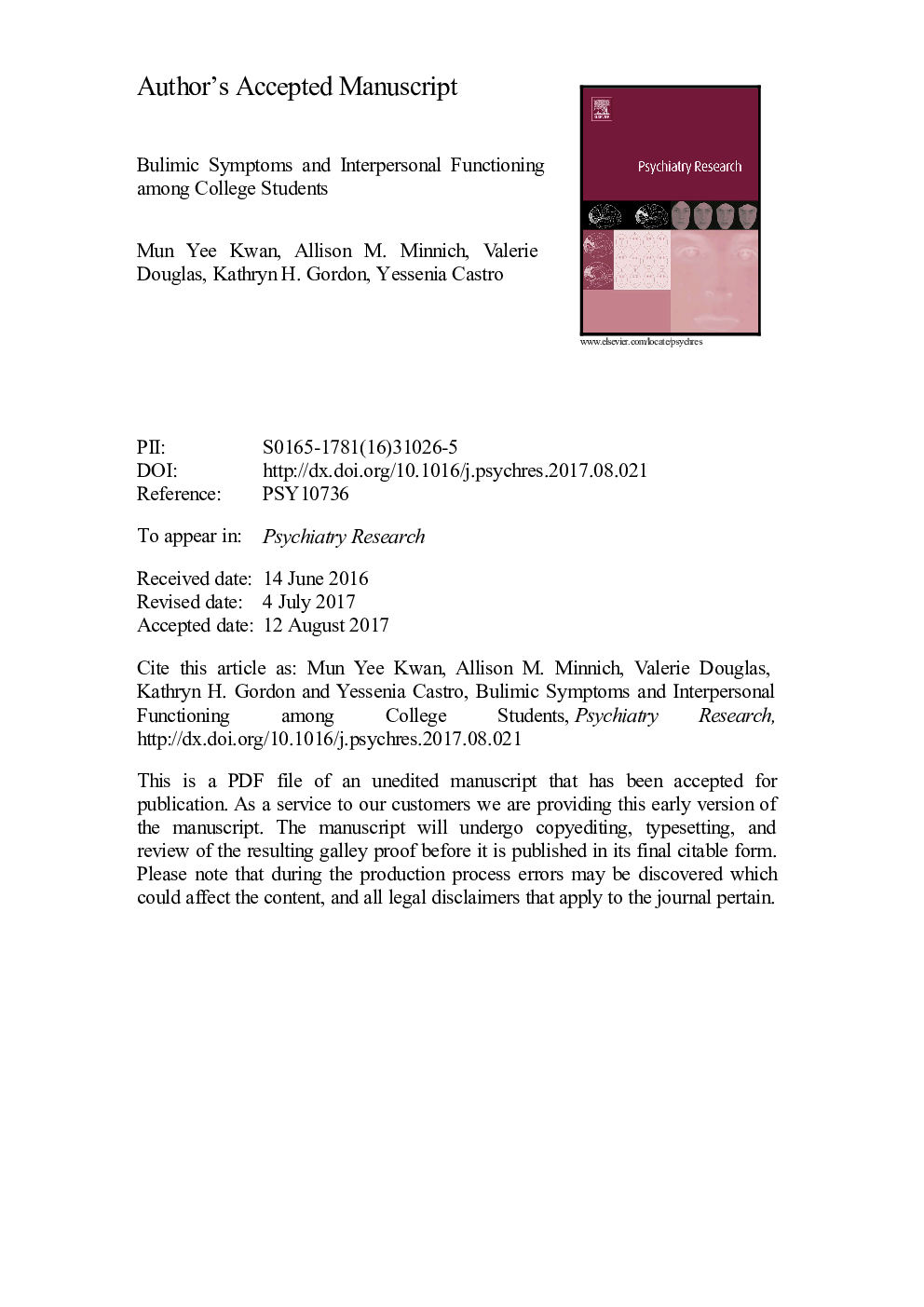| Article ID | Journal | Published Year | Pages | File Type |
|---|---|---|---|---|
| 4933509 | Psychiatry Research | 2017 | 31 Pages |
Abstract
Integrating interpersonal theory and the stress generation hypothesis, two studies investigated the association between bulimic symptoms and interpersonal distress and the mechanism underlying this association. In Study 1, 36 pairs of female roommates completed self-report questionnaires in a laboratory while Study 2 recruited 539 undergraduate men and women to participate in a longitudinal online study by completing self-report measures at two time points. Multilevel modeling revealed that targets' bulimic symptoms predicted roommates' intention to continue living with them in Study 1. Greater bulimic symptoms predicted lower intention. In Study 2, bulimic symptoms had a direct and an indirect effect on interpersonal distress, with reassurance-seeking as a mediator in the indirect effect. Findings replicated previous studies showing that bulimic symptoms generate further distress and, in our studies, interpersonal distress specifically. Moreover, reassurance-seeking was a newly identified mechanism underlying this association. These findings provide support for the usefulness of interpersonal theory and the stress generation hypothesis as a framework for understanding bulimic symptomatology. Clinicians may find it useful to target reassurance-seeking behaviors during the treatment of bulimic symptoms in order to improve treatment outcomes.
Related Topics
Life Sciences
Neuroscience
Biological Psychiatry
Authors
Mun Yee Kwan, Allison M. Minnich, Valerie Douglas, Kathryn H. Gordon, Yessenia Castro,
